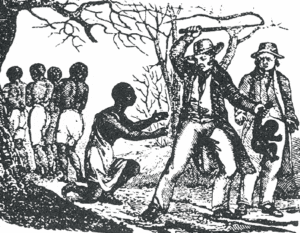NOTICE: Mark your calendar! Thursday, October 5, at 7 p.m. Eastern. Benjamin Power is 0ur first presenter in our upcoming online Austrian conference: “How Austrian Economics Impacted My Life.” Register here to receive your Zoom link.
****
When I discovered libertarianism more than 40 years ago, the revelation that shocked me the most was that I wasn’t living in a free society. All my life, especially since the first grade in the public schools to which my parents were forced to send me, I had been inculcated with the belief that I lived in a free country. And here I was — in my late 20s — breaking through the inches-thick indoctrination that encased my mind and realizing that it was all a lie.
It’s got to be an exhilarating and exciting feeling when one is living in a genuinely free society. When I discovered the truth more than 40 years ago, I decided right then and there that I wanted to live a life of freedom before I passed from this life.
The biggest infringements on freedom are the welfare-state and the national-security-state way of life under which we live. In order to achieve a genuinely free society, it is necessary to dismantle these two massive governmental structures and replace them with a structure that is based on the principles of the free market, voluntary charity, and a limited-government republic.
Unfortunately, long ago some libertarians threw in the towel and gave up on achieving freedom. They convinced themselves that the welfare-warfare state way of life was simply too big, too powerful, and too deeply engrained in the United States and, therefore, that it would be futile to try to eradicate it.
Therefore, they resigned themselves to coming up with reforms that were designed to improve, fix, reform, or modify the welfare-warfare-state infringements on liberty under which we live. Oftentimes, such libertarians described these reform efforts as “advancing liberty.”
But such reform efforts have never been about advancing liberty. That’s because liberty requires the removal of infringements on liberty, not the modification, improvement, or reform of infringements on liberty.
Let’s imagine we are living in 1855 Alabama.
One group of libertarians calls for ending slavery. In doing so, they are making the case for liberty because the only way that slaves could be set free is by immediately dismantling, abolishing, or repealing slavery.

Licensed under Creative Commons Attribution-Share Alike 4.0 International license.
Another group of libertarians, however, takes a different position. They say that slavery is too deeply engrained in America, especially in Alabama. Moreover, they point out, slavery is in the Constitution. They say that we libertarians who are calling for the immediate abolition of slavery are being impractical. They also say that the slaves are not ready for freedom. We have to settle for reform, they exclaim, which means such reform proposals as fewer lashings, reduced working hours, better food, and improved healthcare for the slaves and perhaps the gradual phaseout of slavery over the next 50 years or so.
Would those reforms improve the lot of the slaves? No doubt about it. But there is still something wrong with them: They are not freedom. They are reforms of slavery. To achieve freedom, it is necessary to remove, not reform, infringements on freedom.
Over the years, I have seen some libertarians decide to dedicate their lives, fortunes, and efforts to reforming the welfare-warfare state serfdom under which we live, especially with such socialist and interventionist programs as Social Security, Medicare, Medicaid, public schooling, monetary policy, immigration, foreign policy, the military-industrial complex, the CIA, the NSA, the drug war, Covid, and more.
But ever since I discovered libertarianism, welfare-warfare state reform has never appealed to me. I want to be free. That means continuing to make the case for removing, not reforming, the welfare-warfare-state infringements that prevent us from living the one life we were given in a genuinely free society.



